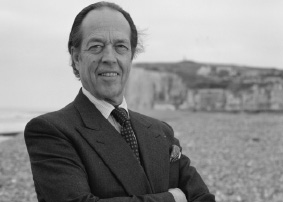Henri d’Orléans
Henri d’Orléans, would-be king of France, died on June 19th 1999, aged 90

The French are, it sometimes seems, reluctant republicans. The revolutionaries who sent Louis XVI to the guillotine hesitated for more than three years before doing so in 1793; and the “national convention” that passed the death sentence managed a far from unanimous vote of 387−334. Henri d’Orléans, a French duke and count of Paris, who sought to restore the French monarchy, took comfort from opinion polls that said a fifth of the French liked the idea of a monarchy, or at least were not opposed to the proposal. It was, he said, a good base to build on.
Henri was unusual among claimants to discarded thrones, the so-called “pretenders”, in proposing that a modern king should be elected and was convinced that a vigorous and well-argued campaign would give him the crown. In 1964 he believed that his moment had come. Charles de Gaulle, then president and regarded by many in France as their saviour, was thinking of retiring. He had taken a liking to Henri d’Orléans and sent him on a number of diplomatic missions to North Africa, a region on which Henri was an expert.
De Gaulle seemed to be uncharacteristically humble towards Henri, whose royal inheritance, he said, made him “eternal”, while the general was just a man. Henri gives the impression in his autobiography that De Gaulle listened sympathetically to his proposals: to stand as a non-political candidate “concerned only with the general interests of France” and, when elected, to restore the monarchy. He would become Henry VI. He felt that he would have appeal as a family man: his long marriage had produced 11 children. (Large families were a feature of Henri’s ancestors: one ancestor, though a homosexual, dutifully fathered six children, helped, it is said, by “holy medals”.)
Henri had a good record as a patriot, joining the Foreign Legion in the second world war after the army had turned him down because of a law that then banned the descendants of former kings from living in France. A son had been killed in the Algerian war. An elected king, he argued, would be a truly French idea: the first French king, Hugh Capet, had been elected in 987, albeit by his nobles rather than by universal suffrage.
Henri’s campaign would undoubtedly have been a fascinating one, much enjoyed by connoisseurs of the by-ways of democracy. “The general wanted to re-establish the monarchy,” Henri recalled later, “and I think he was sincere when he talked to me about it.” However, De Gaulle decided after all to stand for re-election and, even as just a man, was unbeatable.
One of the obvious obstacles to Henri’s ambition to become king was that France already has a sort of monarch, although he is called a president. From De Gaulle to Chirac, French presidents, enjoying powers that far exceed those of most of the world’s 20 or so real monarchs, have rapidly assumed custodianship of la gloire. Appropriately, the president’s home in Paris is a palace. In 1982, François Mitterrand, then France’s newly elected president, entertained the world’s leaders at Versailles, the elaborate palace and gardens built for Louis XIV. For the occasion he had the taps in the palace bathrooms replated in gold.
Henri regarded Mitterrand as the most monarchic of French presidents. As De Gaulle had done, Mitterrand was content to accept Henri into his circle of admirers. Henri’s intimacy with the French leaders probably did no harm to his application for government money to keep his château at Amboise, on the Loire, in royal condition.Henri and Mitterrand were, in an odd way, two of a kind: Mitterrand the socialist monarchist and Henri the royal democrat. Both had for a time supported Henri Pétain’s collaborationist government after the French had been defeated in 1940. Mitterrand had worked for it; Henri had been offered the job of food minister but had declined.
Henri’s support for Mitterrand was not shared by his wife, granddaughter of the last empress of Brazil, who said the president was a bandit. However, the couple tolerated each other for 52 years before they separated. The real opposition to Henri came from another branch of the royal family, the Bourbons. They had their own claimant to the French throne. Henri’s claim, they considered, was dishonoured because one of his ancestors had been a member of the convention that had sent Louis XVI to the guillotine. The proper politics of royalty was on the right, the Bourbons said, and they objected to the liberalism of Henri, whom they called “the red prince”.
He may not have been that liberal. He publicly rebuked his daughter Chantal for criticising the National Front, a right-wing party. It was not that he disagreed with her views, but she should not have spoken without his permission. Chantal was then aged 45, the mother of three children. Henri’s successor as count of Paris, his eldest son, also called Henri, appears to be more easygoing. He is the author of a cookbook and markets a perfume called Royalissime. It is unclear whether he will pick up his father’s hopeful sceptre. But among the 41 grandchildren left by the fecund Henri, it seems likely that someone will. n